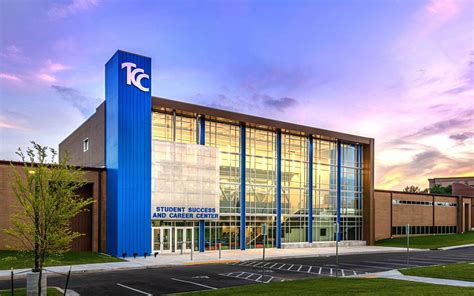Tulsa Community College: A Gateway to Diverse Education
Established in 1970, Tulsa Community College (TCC) is the largest higher education institution in Oklahoma, offering a comprehensive range of technical programs alongside associate and bachelor’s degrees.

- Recognized as a top 10 community college in the nation by the Aspen Institute
- 13 campuses and learning centers across the Tulsa metro area
- Over 150 degree and certificate programs in fields such as:
- Allied Health
- Business
- Engineering Technology
- Public Safety
- Transportation
Tulsa Welding School: Exceptional Training for In-Demand Skills
Founded in 1949, Tulsa Welding School has gained international acclaim for its cutting-edge welding instruction. With multiple campuses in Tulsa and across the country, the school offers intensive programs in:
- Gas Metal Arc Welding (GMAW)
- Shielded Metal Arc Welding (SMAW)
- Pipefitting
- Metal Fabrication
- Welding Inspection and Testing
Oklahoma State University Institute of Technology: A Center for Technical Excellence
Located in Okmulgee, just southwest of Tulsa, Oklahoma State University Institute of Technology (OSUIT) is renowned for its industry-aligned technical programs.
- 11 associate and 9 baccalaureate degree programs
- 26 undergraduate certificates
- Focus on applied learning through hands-on projects and internships
- Close collaboration with industry partners to ensure program relevance
Metro Technology Centers: Empowering Individuals for the Workforce
Metro Technology Centers (MTC) operates seven high-quality career centers in Tulsa County, providing accessible technical education to students of all ages.
- Programs tailored to high-growth industries in healthcare, manufacturing, construction, and information technology
- State-of-the-art facilities and equipment
- Apprenticeship opportunities and on-the-job training
Technical colleges in Tulsa prioritize partnerships with local businesses and industries to ensure programs align with real-world workforce needs. This collaboration benefits students through:
- Industry-sponsored scholarships and internships
- Access to advanced equipment and software
- Hands-on learning experiences that prepare them for immediate employment
Career Pathways and Lifelong Learning
The technical colleges in Tulsa offer a continuum of learning pathways, from certifications to associate degrees and beyond. This flexibility allows individuals to:
- Advance their careers by acquiring new skills and knowledge
- Transition between industries to pursue emerging opportunities
- Upskill their workforce to meet evolving technological demands
Common Mistakes to Avoid
When considering technical colleges in Tulsa, it’s essential to avoid these common pitfalls:
- Choosing a program solely based on popularity: Consider your interests, strengths, and career aspirations.
- Overestimating job prospects: Research the job market and industry trends before enrolling in a program.
- Ignoring accreditation: Ensure programs are accredited by reputable organizations to ensure quality and recognition.
Q: What is the cost of technical college?
A: Tuition and fees vary depending on the college and program. However, many colleges offer financial aid options such as scholarships, grants, and loans.
Q: Are online programs available?
A: Yes, most technical colleges offer online or hybrid programs for flexibility and accessibility.
Q: Can I transfer credits to a four-year university?
A: Many technical colleges have articulation agreements with universities, allowing students to transfer credits and continue their education.
Q: How long does it take to complete a technical program?
A: The duration of technical programs varies. Associate degree programs typically take two years to complete, while certificate programs can be completed in a few months to a year.
Q: What career opportunities are available?
A: Graduates of technical colleges are in high demand in industries such as healthcare, manufacturing, construction, energy, and information technology.
Q: Is technical college right for me?
A: Consider technical college if you are looking for a hands-on, career-focused education that will prepare you for immediate employment.
Q: How can I choose the right technical college?
A: Visit campuses, research programs, talk to current students and alumni, and attend career fairs to find the college that best aligns with your goals.
Q: What is the job outlook for graduates?
A: The Bureau of Labor Statistics projects strong job growth in technical fields. Healthcare, manufacturing, and information technology are among the industries with the highest growth potential.
Technical colleges in Tulsa, OK offer an unparalleled opportunity for individuals seeking career advancement, job training, or a change in career direction. By leveraging industry partnerships, providing innovative programs, and fostering a culture of lifelong learning, these institutions empower students to secure rewarding careers in high-demand fields.
